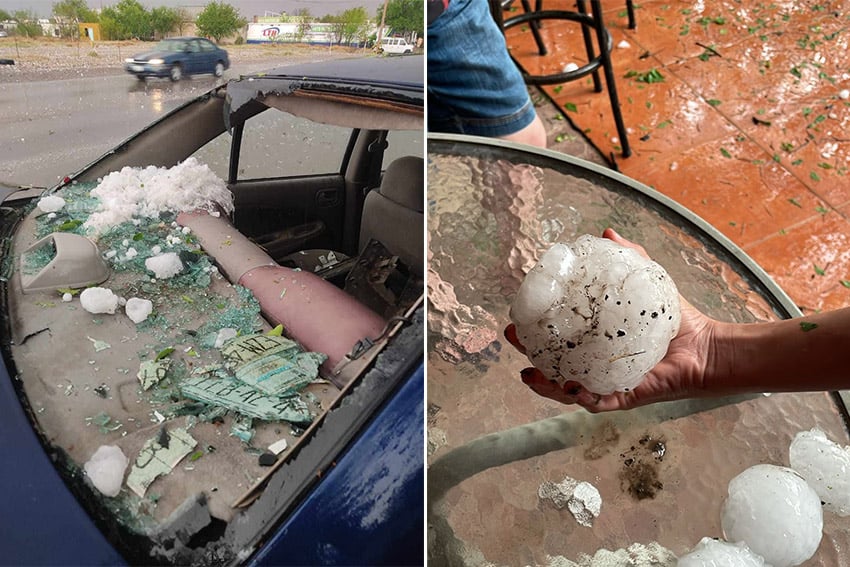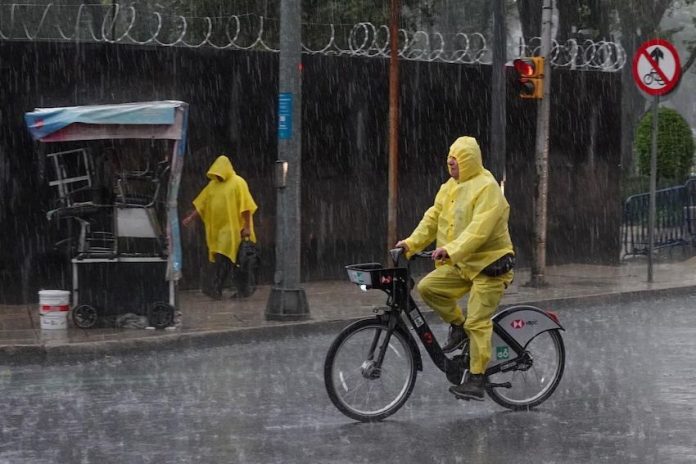The National Meteorological Service (SMN) reports several regions of Mexico are expected to see cloudy skies and rain due to the influence of cold front 40.
The forecast for Monday includes heavy rainfall in Hidalgo, Puebla, San Luis Potosí, and Veracruz and heavy to very heavy rains in Nuevo León, Oaxaca, Querétaro, Tamaulipas Chiapas, Coahuila, and Tabasco.
Meanwhile, showers are also in the forecast for Campeche, Chihuahua, Mexico City, the State of México, Guanajuato, and Tlaxcala, with isolated storms expected for Quintana Roo, Yucatán, and Zacatecas.
The SMN has warned that intense rainfall could result in landslides, as well as overflows and flooding in low-lying areas.
Residents in the north of Mexico should be aware that the cold front could potentially cause tornadoes in Chihuahua, Coahuila, Durango and Nuevo León.
The cold front could also bring gusts of wind ranging from 60 to 80 kilometers per hour and waves as high as 1 to 3 meters on the coasts of Tamaulipas and Veracruz. On Monday evening, the Isthmus and Gulf of Tehuantepec may also experience wind gusts ranging from 50 to 70 kilometers per hour.

Isolated showers and even sleet and snowfall are expected in the mountains of Baja California due to a cold-core low pressure system in the southwestern United States. Baseball-sized hail caused damage and injuries in Sabinas, Coahuila, on Friday, where an 8-year-old girl was hospitalized with a skull fracture.
Hot temperatures continue for the rest of the country
Despite the cold front, many parts of Mexico will continue to experience scorching temperatures as high as 45 degrees Celsius.
Colima, Michoacán, Guerrero, Morelos, Campeche, Yucatán, Quintana Roo and the coast of Jalisco will see maximum temperatures of 40 to 45 degrees Celsius (104 to 113 Fahrenheit).
Nayarit, México state (southwest), Puebla (southwest), Oaxaca, Chiapas and Tabasco will see maximum temperatures of 35 to 40 degrees Celsius (95 to 104 degrees Fahrenheit) while Sinaloa, Durango (west), Guanajuato and Veracruz (south), will experience temperatures between 30 to 35 degrees Celsius (86 to 95 degrees Fahrenheit).
In areas affected by high temperatures, the SMN advises residents to avoid prolonged exposure to solar radiation, stay hydrated, and closely monitor chronically ill people, children, and older adults.
With reports from Milenio
